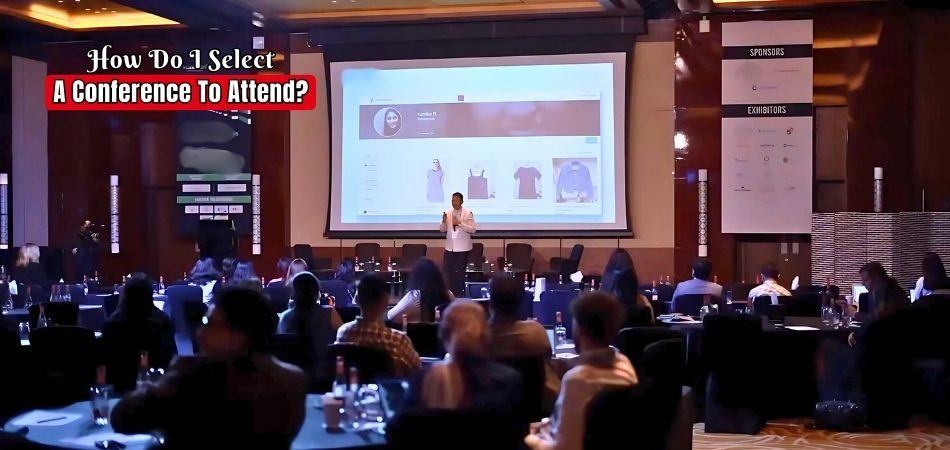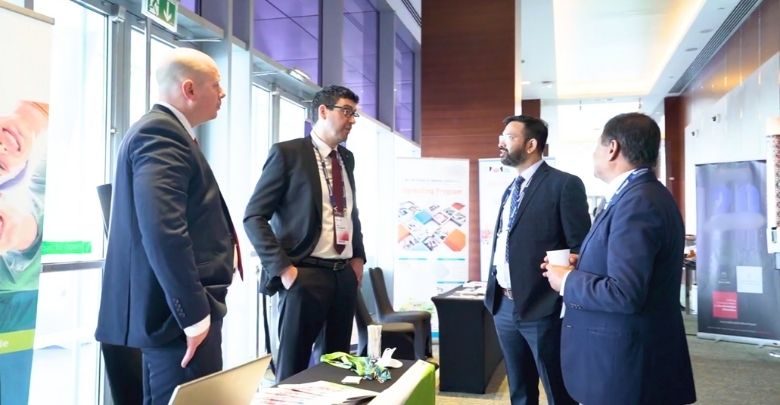Every professional needs to make the right choice when choosing conferences to attend. Conferences provide opportunities to learn, network, and share knowledge. However, with so many options available, it can be challenging to determine which conference is the best fit for your goals. So, how do I select a conference to attend?
Start by identifying your objectives for attending. Are you looking to gain new knowledge, network with industry leaders, or present your research? Knowing your goals will guide you in choosing a conference that aligns with your professional aspirations.
In this article, we will explore the importance of selecting the right conference and provide a comprehensive guide on how to make your choice. We will discuss factors to consider, where to find information about conferences, how to assess their reputations, and tips for networking effectively. By the end of this article, you will have the tools you need to confidently select the best conference for your needs.
Why Is It Important to Select the Right Conference?
Selecting the right conference can greatly influence your professional development. A well-chosen conference can improve your skills, expand your knowledge, and provide valuable networking opportunities. Conversely, attending the wrong conference may waste your time and resources, leaving you with little to gain.

One key benefit of attending a relevant conference is the opportunity to learn about the latest trends and advancements in your field. Conferences often feature expert speakers, workshops, and panel discussions that provide insights you may not find elsewhere. This exposure can spark new ideas and inspire your work.
Networking is another significant advantage of attending the right conference. Connecting with like-minded professionals can lead to collaborations, mentorships, and job opportunities. By choosing conferences to attend that attract individuals in your field, you increase the chances of making valuable connections.
Ultimately, selecting the right conference is about aligning your goals with the opportunities available. By doing your research and considering the factors involved, you can ensure that your conference experience is enriching and beneficial for your career.
How Do I Select a Conference to Attend?
Selecting the right conference is essential for maximizing your professional development. With many options available, it can feel overwhelming to choose the best fit. This step-by-step guide will help you find a conference that aligns with your goals and interests. By following these simple steps, you can make an informed decision and better your conference experience.
Step 1: Identify Your Goals
Start by identifying your specific goals for attending a conference. Are you looking to learn about new trends, present your research, or network with industry leaders? Write down your objectives, as this will guide your search for conferences that meet your needs. Having clear goals helps narrow down your options and allows you to focus on events that will provide the most value.
Step 2: Research Relevant Conferences
Once you have defined your goals, begin researching relevant conferences. Use online resources, academic databases, and professional associations to find upcoming international conferences in your field. Websites like Conference Alerts and All Conference Alert can provide comprehensive listings. Bookmark these sites for easy access as you continue your search.
Step 3: Consider the Conference Theme
Pay attention to the theme and topics of the conferences you find. Ensure they align with your research interests and professional goals. A conference that focuses on subjects relevant to your work will provide the most valuable insights and networking opportunities. Reviewing past conference agendas can also help you determine if the themes are consistent and relevant.
Step 4: Evaluate the Organizers
Investigate the organizers of the conference. Reputable institutions or organizations typically host credible events. Research their background and past conferences they have organized. A well-regarded organizer is often a sign of a legitimate conference that will deliver quality content. Look for their track record in hosting successful events in your field.
Step 5: Check Past Conference Feedback
Look for feedback from previous attendees of the conference. Search online for reviews, testimonials, or discussions on forums and social media. Learning about others’ experiences can provide valuable insights into the quality of the conference and help you make a more informed decision. Pay attention to recurring themes in the feedback, whether positive or negative.
Step 6: Review the Agenda and Speakers
Once you’ve narrowed down your options, review the conference agenda and speakers. A strong lineup of keynote speakers and diverse sessions indicates a well-organized event. Check if there are workshops or panels that align with your interests. This can upgrade your experience and provide additional learning opportunities. Consider how the topics will contribute to your professional growth.
Step 7: Assess Location and Logistics
Consider the conference’s location and the logistics involved. Is it local, national, or international? Take into account travel costs, accommodation, and the time required to attend. If the conference requires significant travel, weigh the benefits against the expenses and time commitment. Evaluate the convenience of the venue in relation to your schedule.
Step 8: Look for Networking Opportunities
Networking is a crucial aspect of attending conferences. Review the schedule to see if there are dedicated networking events, social activities, or informal gatherings. Conferences that facilitate networking can improve your experience and help you connect with other professionals in your field. Make a plan to engage with attendees and speakers during these opportunities.
Step 9: Verify Submission Guidelines
If you plan to present your research, check the submission guidelines and deadlines. Make sure you have enough time to prepare and submit your paper according to the conference’s requirements. Knowing the specifics for presentations or posters is crucial for your planning. Double-check the format and length requirements to avoid any last-minute surprises.
Step 10: Register Early
Once you have selected a conference, register early to secure your spot. Early registration often comes with discounts and guarantees your attendance at popular events. Be sure to complete all required information and payments promptly to avoid missing out on the opportunity. Early registration also gives you time to prepare for the conference itself.
What Factors Should I Consider When Choosing a Conference?
Choosing the right conference to attend is a critical decision that can greatly impact your professional development. Several key factors should guide your selection process to ensure that the event aligns with your goals and offers maximum benefit. Here are some important considerations:
- Conference Theme and Topics
Evaluate the conference’s theme and topics. Ensure they align with your research focus and interests. A conference that closely relates to your work will attract a relevant audience, providing valuable feedback and insights that can upgrade your research. - Reputation of the Conference
Consider the reputation of the conference itself. Research the organizers and look into previous events to assess credibility. A well-regarded conference often attracts leading experts in the field, enriching the quality of discussions and networking opportunities available to you. - Location and Logistics
Think about the location of the conference and the logistics involved. Determine whether the event is local, national, or international, and evaluate the associated travel costs and accommodation options. Assessing these practical considerations can significantly influence your ability to attend and participate effectively. - Submission Guidelines and Deadlines
Finally, review the submission guidelines and deadlines carefully. Ensure you have enough time to prepare and submit your paper according to the requirements. Being aware of these details will help you make an informed decision and maximize your chances of successfully presenting your work.
Where to Find Information About Conferences?
You must have correct information about conferences in order to make an informed decision about attending. There are several valuable resources you can explore to locate relevant conferences in your field. Academic institutions often play a significant role, as many universities host conferences or provide details about upcoming events across various disciplines. Checking the websites of institutions related to your research can lead to announcements about relevant conferences and workshops.
Additionally, joining professional associations in your area of expertise can keep you informed about important conferences. These organizations typically maintain dedicated sections on their websites for listing upcoming events, offering members the latest information on conferences and networking opportunities.
Another effective way to find conferences is through specialized conference listing websites like Conference Alerts and All Conference Alert. These platforms allow you to search for conferences by topic and date, making it easier to find events that align with your interests.
Lastly, social media platforms such as Twitter and LinkedIn are excellent sources for discovering conferences, offering various ways to find conferences to attend. Following industry leaders and organizations can provide updates on upcoming events and help you connect with like-minded professionals. By utilizing these resources, you can effectively gather the information you need to select the right conferences for your research goals.
How to Assess the Reputation of a Conference?
It is essential to assess a conference’s reputation before attending. A credible conference can offer valuable insights and networking opportunities, while a questionable one may not. By carefully evaluating a conference’s reputation, you can make a wise investment of your time and resources. Here are some practical steps to help you evaluate a conference’s credibility.
Research the Organizers
Look into the background and affiliations of the conference organizers. Reputable institutions or organizations typically host credible conferences. You can find this information on their official website or through academic networks. If the organizers lack a solid reputation, consider avoiding the event altogether.
Review Past Conferences
Investigate if the conference has been held in previous years. Look for information about past attendees, keynote speakers, and overall feedback from those who attended. A history of successful conferences indicates reliability and quality. If the conference has consistently attracted respected professionals, it’s a good sign.
Read Testimonials
Search for testimonials from previous attendees to gain insights into their experiences. Look for comments on social media, forums, or academic platforms that discuss the conference. Genuine feedback can highlight both the strengths and weaknesses of the event. Positive reviews from credible sources can reinforce the conference’s reputation.
Check for Conference Proceedings
Look for published proceedings from previous events. Published proceedings show that the conference is committed to sharing knowledge and research with the community. They also indicate that the event is well-organized and professional. If a conference has a history of documenting its proceedings, it’s likely credible.
Verify Venue and Date
Ensure the conference has a legitimate venue and date. A credible conference will provide clear information about where and when it will take place. If the venue seems unusual or the date changes frequently, it may be a red flag. Cross-check these details on the conference website to confirm their accuracy.
How to Network Effectively at Conferences?
The purpose of networking at conferences is to build connections and advance your career. Here are some tips to help you network effectively at these events. Follow these tips to maximize your conference networking opportunities. You can advance your career and collaborate with others by building a strong professional network.
- Be Approachable: Smile and maintain open body language. Being friendly and approachable encourages others to start conversations with you. First impressions matter, and a warm demeanor can make a difference.
- Prepare Your Elevator Pitch: Have a brief introduction ready that summarizes who you are and what you do. This elevator pitch should be concise and engaging. Practice it until you can deliver it confidently and naturally.
- Ask Open-Ended Questions: Engage in discussions by asking open-ended questions about others’ research. This approach encourages deeper conversations and shows your genuine interest in their work. Listening actively can also help build rapport.
- Exchange Contact Information: Always carry business cards or have a digital method for exchanging contact information. After a meaningful conversation, offer your card or request theirs. Following up after the conference can strengthen the connection.
- Participate in Group Activities: Attend workshops, panel discussions, and networking events during the conference. These activities provide opportunities to meet new people and share ideas. Engaging in group settings can help you connect with others more easily.
Frequently Asked Questions
In this FAQ section, we answer common questions about selecting a conference to attend. These questions aim to provide clarity and help you make informed decisions. Whether you are new to conferences or seeking specific information, you’ll find useful insights here. We hope these answers reinforce your awareness and assist you in your conference journey.
Why Is It Important to Select the Right Conference?
Selecting the right conference is crucial for your professional growth. The right event provides opportunities to learn, network, and share knowledge. A well-chosen conference can significantly impact your career trajectory. Attending a conference that aligns with your goals can increase your visibility and credibility in your field.
How Can I Identify Legitimate Conferences?
To identify legitimate conferences, research the organizers, check previous conference records, and read testimonials from past attendees. Look for clear information about their agenda and submission guidelines. A reputable conference will typically have a well-organized website. Additionally, consider reaching out to past participants for their experiences and insights.
What Should I Do If I Have Doubts About a Conference?
If you have doubts about a conference, take the time to verify its credibility. Research the organizers, read reviews, and reach out to colleagues who have attended in the past. Trust your instincts; if something feels off, it may be best to look for another conference. Don’t hesitate to ask questions directly to the conference organizers for clarification.
How Do I Prepare for a Conference After I’ve Registered?
After registering for a conference, start preparing your presentation or poster. Review the conference agenda and identify sessions that interest you. Make a plan for networking and engage with fellow attendees during the event. Also, ensure you have all necessary materials ready well before the conference date.
Can Social Media Help Me Find Conferences?
Yes, social media is a valuable tool for finding conferences. Follow relevant hashtags, join professional groups, and engage with conference organizers on platforms like Twitter and LinkedIn. This approach can lead you to discover real conferences and connect with other researchers. You may also find updates and announcements that can help you stay informed..
Final Words
To expand your professional network and grow as a professional, you need to choose the right conference. A well-chosen conference can provide valuable insights, improve your skills, and connect you with like-minded individuals. Take the time to research and evaluate your options to ensure a positive career experience.
To answer the question of how do I select a conference to attend?, start by identifying your objectives and researching conferences that match your interests. Consider factors such as the theme, location, and reputation of the conference. By being proactive and thorough in your evaluation, you can choose an event that offers the best opportunities for learning and networking.







